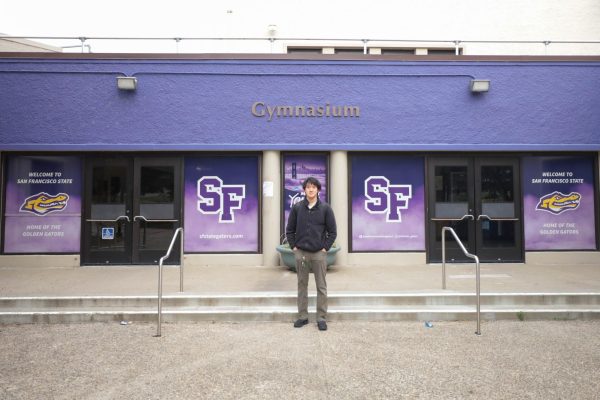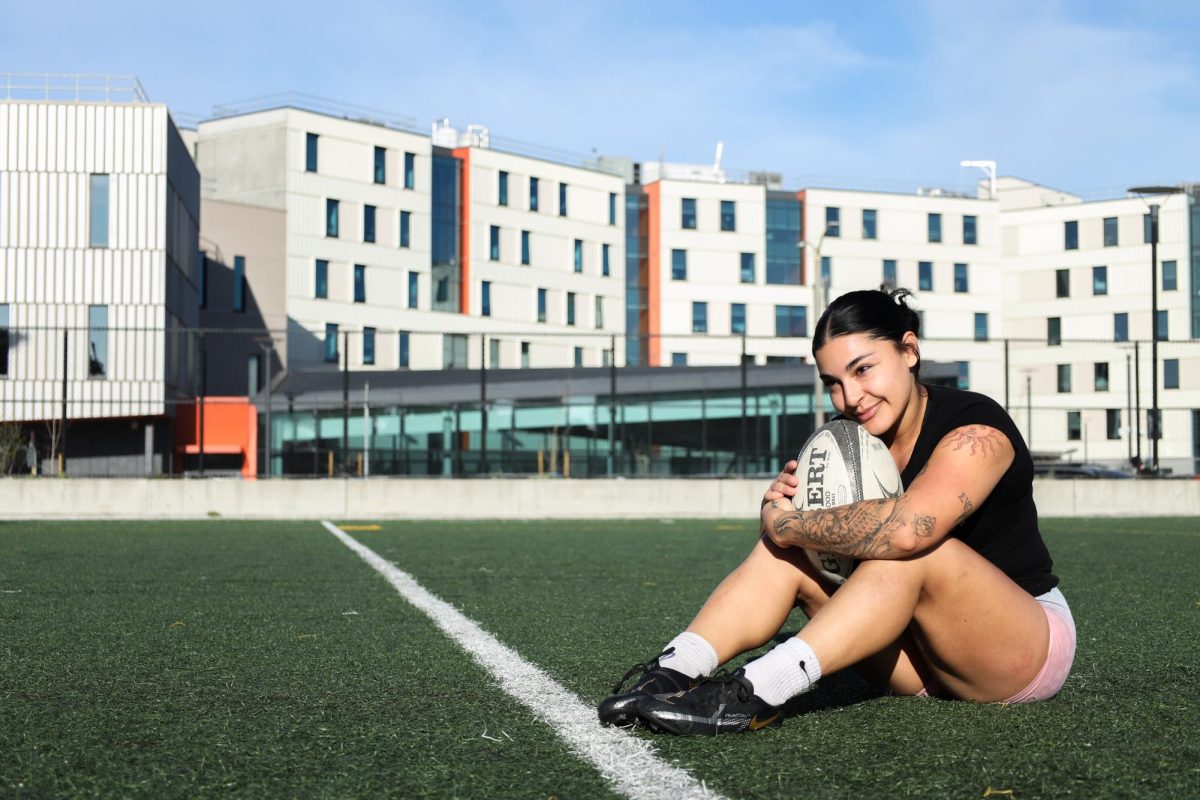In the midst of the Trump administration’s policies to uphold the belief that there are only two genders, San Francisco State University athletes and the LGBTQ+ community are determined to preserve the campus and playing fields as accepting environments.
President Trump’s signage of the “Keeping Men Out of Women’s Sports” executive order on Feb. 5 also changed the NCAA’s policies requiring all student-athletes to practice and compete on mens and womens teams respectively.
As of 2022, there are 520,000 NCAA student athletes. The NCAA’s president, Charlie Baker, testified during a December congressional meeting that he was aware of fewer than 10 NCAA athletes who identified as transgender, a number representing fewer than 0.01% of the organization’s athletes.
This follows a streak of orders since his inauguration affecting the LGBTQ+ community, including the defense from “gender ideology” and protection of children from “chemical and surgical mutilation.” This supervision of funds mirrors January’s federal funding freeze aimed to cut off money for Diversity, Equity and Inclusion organizations to instead reinstate merit-based hiring.
However, a loss of federal funding is what CSUs, including San Francisco State University, fear and why some departments on campus remain silent.
Due to concerns about the funding process, Interim Director of Athletics Brandon Davis said the athletics department and presumably others are “hesitant to speak until they get clarity.”
But as university departments remain on the hush, students and athletes alike are choosing the alternative.
Olivia Rollins is a co-captain of the University of San Francisco women’s rugby club. According to her, about 70% of the team identifies as LGBTQ+. Rollins said she felt disheartened after hearing about the ban and is determined to keep the team an LGBTQ+ friendly environment.
“What you identify with and what you feel safe as is way more important than any sort of biology,” Rollins said. “I also think that, especially for rugby culture in general, it’s very positive and very uplifting.”
Regarding biological male and female physical traits, SFSU women’s rugby club co-captain Anna Timmerman explained that while there are some genetic differences between men and women, playing sports goes beyond someone’s chosen gender.
“I know that there have been arguments for people saying that genetically, men are built with more muscle mass,” Timmerman said. “And women technically have more fat mass than men. But I think the same thing that goes for sports is like, it doesn’t matter who’s playing it. It’s about how hard you train. And I think mindset is a really big component in this.”

However, for water polo captain Jake Ni, who oversees the co-ed club at SFSU, swimming is more body autonomy dependent. Ni points to the larger height and “classic hip bone thing” between men and women.
“A random guy that swam competitively for the men’s, just to switch to the women’s, it’s like, there’s a huge discrepancy between the two,” Ni said.
Despite these differences, Ni said that competing on a gender-based team is concluded on a case-by-case basis of skill and strength. The type of competitive mindset and skill level is what earns you a spot on the team, said Ni.
“So for the women transitioning to men, I’m like, ‘have at it,’” he said. “If you can match our skill level, you’ve earned your spot on the team right? If they’re like 6-foot-4, highly muscular and like highly athletic and have been playing for years, then just recently transitioned, became a trans woman. Yeah, we’ll have to take that with a grain of salt because even the stature itself is huge.”
Gray K. identifies as non-binary and works at the Education and Referral Organization for Sexuality at SFSU, a peer education group with Associated Students. They say the sports ban and other anti-transgender legislation have made LGBTQ+ students feel on edge.
“I think it’s more dangerous [to be LGBTQ+] because more right-wingers and Trumpers are empowered,” Gray said. “They literally [have been] empowered to be loud.”
According to a 2021 study conducted by the UCLA School of Law, transgender people are four times more likely to be victims of violent crime compared to cisgender people.
“I’m scared for other people,” Gray said. “I’m scared for my friends. I’m scared for everybody.”
But on and off the field, Gray says transgender athletes’ teammates should feel a sense of community towards one another, not discomfort.
“I want to reassure women who feel like they’ve been fighting for women’s rights that they also [should] feel in community with these trans women,” Gray said. “Because you are, whether you believe it or not.”
Echoing Gray, SFSU rugby player Samantha Varona said the ban won’t change the team’s acceptance policy “regardless of where someone stands” on the ban.
“I don’t really think that this is something that will deteriorate our team or any other teams,” Varona said. “I know many teams we’ve played against don’t have an issue with it [transgender athletes] and I know me and my team, we don’t either.”
According to Davis, the CSU is still considering its plan of action in response to the ban.












